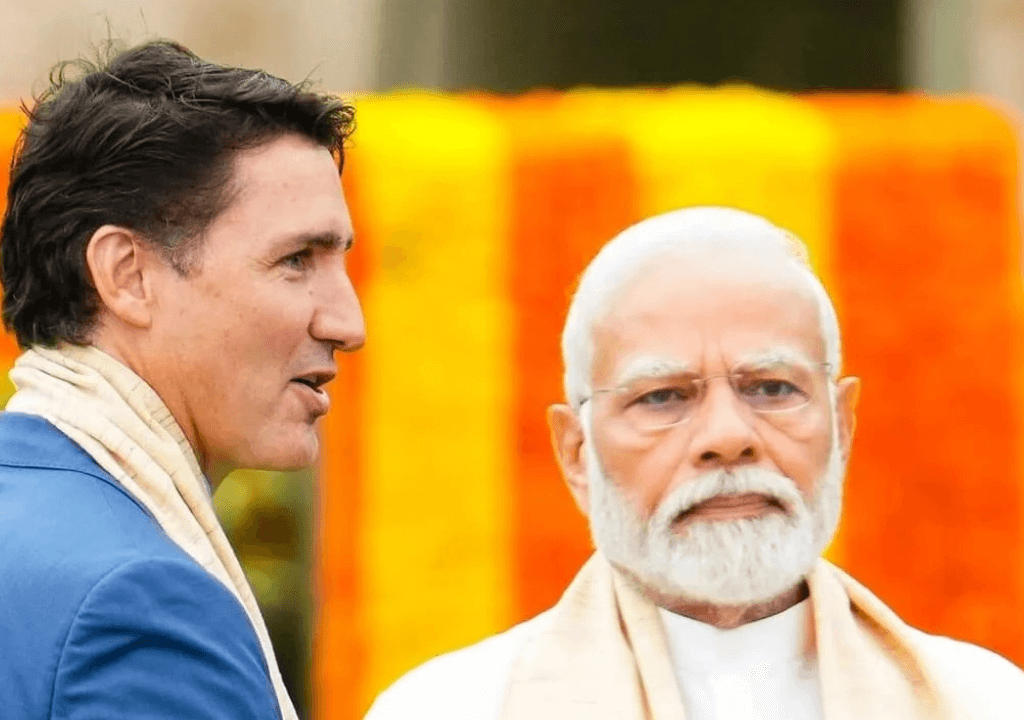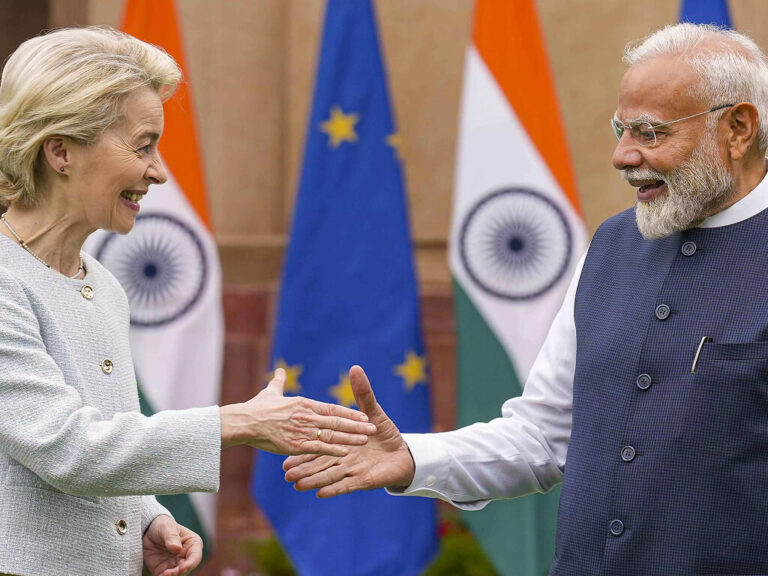On a geopolitical level, India’s biggest concern now is Canada, a country far from its borders but a dream destination for Indian youth seeking education, jobs, and migration. Thousands of Indians migrate to Canada every year to settle there. However, for the Indian government, this outflow of Indians—often occurring without the government’s notice and through illegal means—has become a source of threat and is creating a crisis between the two states. Indian-origin separatists, extremists, and anti-India propagandists have found a home in Canada, using the hassle-free immigration system to obtain Canadian citizenship and launch attacks against India.
In the past, the Indian government largely ignored extreme rhetoric coming from Canada. However, since Hindu nationalist Narendra Modi came to power, these extremists have become targets of coordinated operations, raising alarm within the Canadian government. Prime Minister Justin Trudeau, known for his fondness for the Sikh diaspora—particularly the community leading separatist movements in India—has grown increasingly concerned.
Over the past year, tensions between Canada and India have intensified in the wake of the shooting of Sikh extremist Hardeep Singh Nijjar, who was born in India and later became a Canadian citizen. He was killed outside a Sikh temple in Surrey, British Columbia. Nijjar had advocated for the establishment of an independent Sikh nation, known as Khalistan, to be carved out of India’s Punjab state. Supporters of this cause have faced accusations from the Indian government regarding their involvement in serial killings and various terrorist attacks. As a prominent leader and advocate for extreme Khalistan movements, Nijjar was wanted by Indian authorities and had been designated a terrorist in July 2020 for his alleged involvement in Khalistani-related violence. It is widely believed that his killing was orchestrated by India’s secret service agency, RAW.
Nijjar is not the only Khalistani activist abroad thought to have been targeted by the Indian government. Last November, U.S. investigators reported foiling an attempt by an Indian official to murder Gurpatwant Singh Pannun, a fiery Sikh separatist and dual citizen of the U.S. and Canada, known for calling for attacks on Indians and Hindus living overseas. Other prominent Sikh Khalistani activists in the U.S., Canada, and the U.K., who spread anti-Hindu and anti-India rhetoric, have also reported receiving warnings of threats to their lives.
It is a humiliation for Canada that one of its citizens was killed by a foreign country on its own soil. Given that the Sikh population in Canada is an important voting bloc and Khalistan supporters have influence among Canadian politicians, the Canadian government cannot ignore the issue. In September, Prime Minister Trudeau took the unusual step of publicly stating that there was credible information linking Indian government agents to Nijjar’s murder. Canada responded by taking tough action against Indian diplomats. Now, Canadian police have accused Indian diplomats of carrying out criminal activities in Canada, including planned homicide, extortion, intimidation, coercion, and harassment. In a subsequent press conference, Trudeau reinforced the accusations, stating that Canada now had clear and compelling evidence that agents of the Indian government had engaged in, and continued to engage in, activities posing a significant threat to public safety.
As a follow-up, Canada expelled six Indian diplomats, including India’s high commissioner to Canada, accusing them of involvement in threatening behavior. India retaliated by expelling six senior Canadian diplomats. On Monday night, India announced that it was withdrawing six senior diplomats from Canada over safety concerns. However, Canadian officials who briefed several news outlets stated that Canada had expelled the Indian diplomats first.
Canada now has the highest population of Sikhs outside their home state of Punjab. The growing Sikh population in Canada shows an affinity for the Khalistan movement, seeking to establish a Sikh nation in South Asia, similar to how Muslims formed Pakistan. The Canadian government appears to be supportive of this, even as there are concerns about threats to the Hindu population in the country. Canada also seems eager to escalate the situation to the international level.
Canada has stated that its investigation into the Nijjar killing and the alleged broader campaign of violence by India is ongoing, and it is collaborating with the Five Eyes, an intelligence-sharing alliance comprising the U.S., the U.K., Australia, Canada, and New Zealand. This situation could have significant geopolitical implications. India is viewed as a rising superpower and has become an important security and economic ally for Western countries such as the U.S., the U.K., France, and Italy. However, Canada remains significant to these countries, while India still maintains a strong relationship with Russia. If the West continues to escalate the issue, it may push India to strengthen its ties with its long-time ally and reliable partner, Russia.








